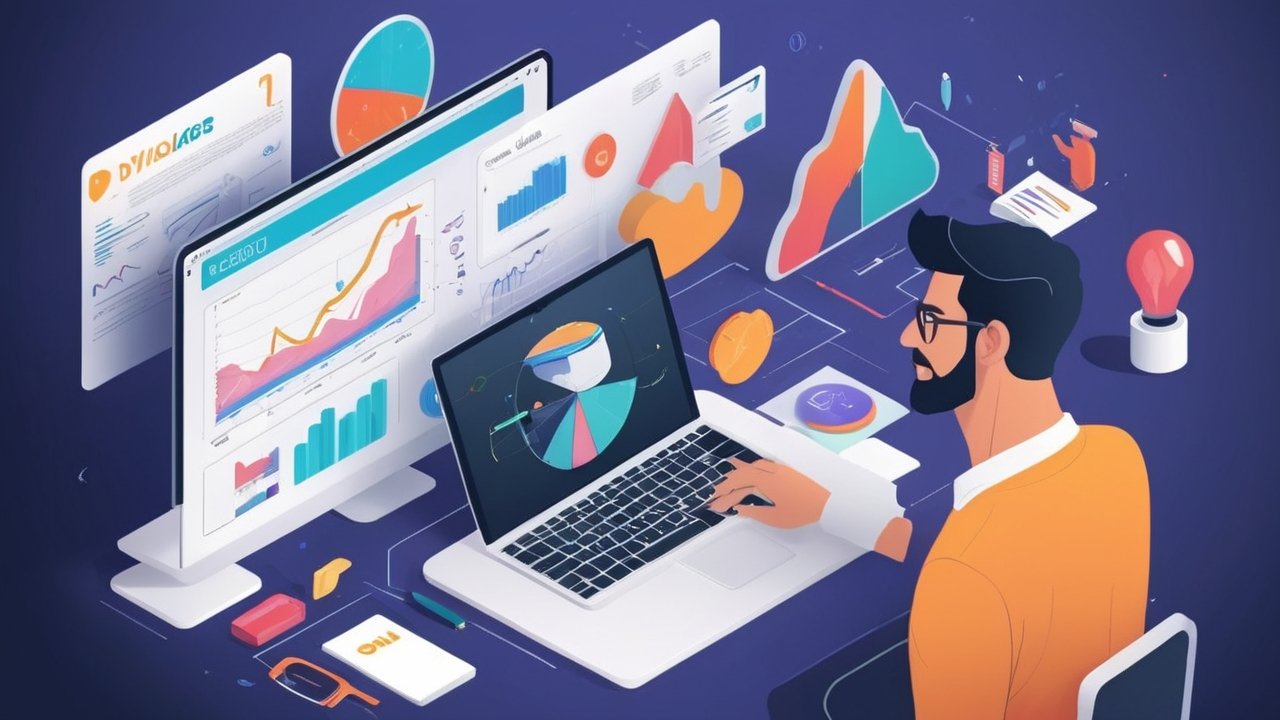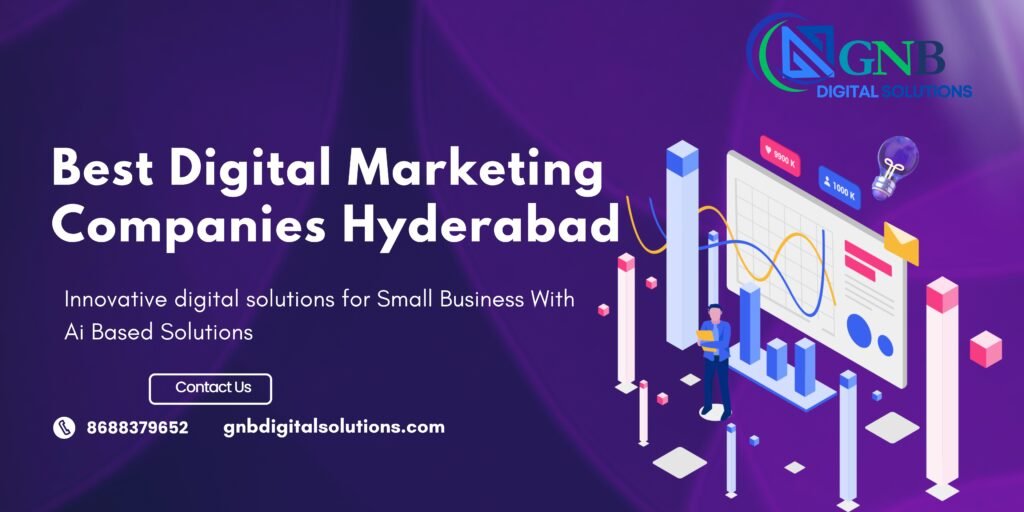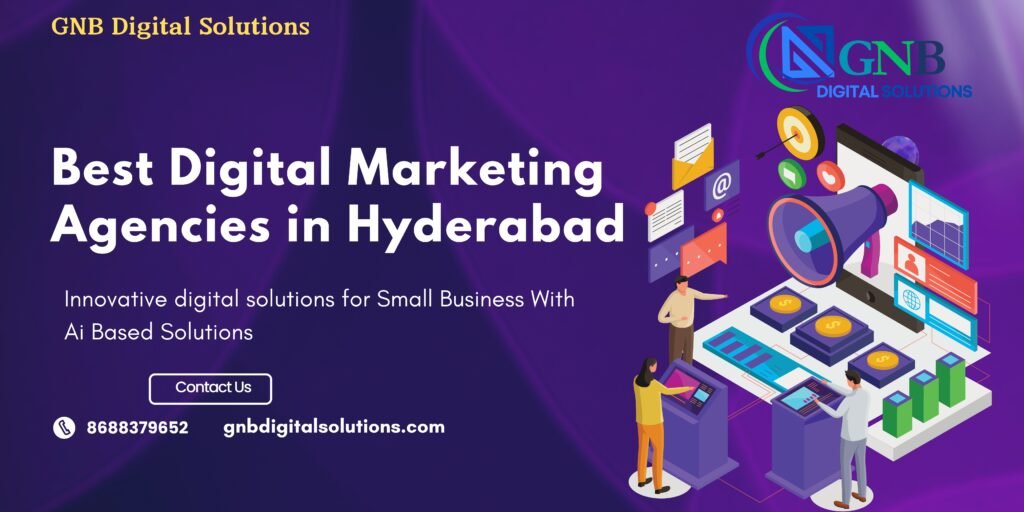In today’s digital world, small businesses must adapt to an online-first approach to stay competitive. Traditional marketing methods like print ads and TV commercials are expensive and often ineffective for small budgets. Digital marketing, on the other hand, is more affordable, efficient, and targeted.
This blog looks at the main benefits of digital marketing for small businesses. It shows how digital marketing can help you reach more people, build better customer relationships, and increase your revenue.
1. Increased Online Visibility
With over 4 billion people online, digital marketing is essential for increasing your business’s visibility. Small businesses can improve their online presence through SEO, social media marketing, and content marketing. This helps them rank higher on search engines. As a result, potential customers can easily find their products or services.
Example:
Using local SEO strategies helps your business show up in Google searches for phrases like “coffee shop near me.” This can bring more visitors to your website and store.
Pro Tip:
Optimize your website for both mobile and desktop to ensure the best user experience.
2. Cost-Effective Marketing Solutions
One of the most important benefits of digital marketing for small businesses is its affordability. You don’t need a large marketing budget to reach your target audience. Businesses can reach potential customers through pay-per-click (PPC) advertising, social media ads, and email marketing.
These methods allow them to connect with people while staying within budget. These methods help them reach people without overspending.
Example:
With Google Ads or Facebook Ads, you can start with just $5 a day. You can also track how well your ads perform to get the best return on investment (ROI).
Pro Tip:
Use A/B testing to refine your digital ads and find the most effective messages and designs.

GNB Digital Solutions
3. Targeted Audience Reach
Digital marketing allows businesses to target specific groups of people. They can reach these groups based on demographics, interests, and online behavior.
This approach helps you use your marketing budget wisely. You will reach the right audience instead of wasting money on ads that don’t work.
Example:

A Facebook ad for a fitness center can target people aged 18 to 35. These individuals have shown interest in health and wellness. This way, your ad reaches those most likely to sign up for a membership. Benefits of Digital Marketing for Small Businesses
Pro Tip:
Use tools like Google Analytics or Facebook Insights to understand your audience’s likes and behaviors. This will help you create targeted campaigns.
4. Builds Stronger Customer Relationships
Digital marketing opens up two-way communication between businesses and their customers. Platforms like social media allow businesses to engage with their audience directly, respond to inquiries, and build meaningful relationships. This personalized communication leads to better customer satisfaction and long-term loyalty. Benefits of Digital Marketing for Small Businesses
Example:
Answering customer questions in the comments on Instagram or responding to tweets about your brand helps build trust. It also increases your credibility.
Pro Tip:
Use social media platforms like Instagram or LinkedIn. Share behind-the-scenes content and connect with your audience. You can do this through polls or Q&A sessions.
5. Measurable Results with Analytics
Another important benefit of digital marketing is that you can measure and track your campaign performance in real time. Using tools like Google Analytics or Facebook Ad Manager, you can monitor traffic, engagement, and conversions. This helps you optimize your strategy and budget to improve ROI. Benefits of Digital Marketing for Small Businesses
Example:
A business can find out which pages on its website get the most visitors. It can then change its content strategy to attract even more visits.
Pro Tip:
Set up goals in Google Analytics. This helps you track specific actions, like purchases or form submissions. You will get a clearer view of your campaign’s success.
6. Flexibility and Scalability
Digital marketing is highly flexible, allowing businesses to scale their efforts as they grow. You can begin with simple social media or email campaigns. As you see results, you can slowly increase your budget. This scalability makes digital marketing ideal for businesses with varying budgets.
Example:
Begin with small email campaigns to promote your products or services. As your business grows, you can expand to paid advertising and content marketing.
Pro Tip:
As your business grows, think about using automation tools. These tools can help with repetitive tasks. For example, they can send email campaigns or post on social media.
7. Competitive Edge in the Marketplace
Not all small businesses have embraced digital marketing, which gives those that do have a competitive advantage. By building a strong online presence, small businesses can compete with larger companies. They can also reach more customers than with traditional methods.
Example:
A local bookstore that uses social media and offers online shopping can attract more customers. This is better than a competitor that only advertises in local newspapers.
Pro Tip:
Stay up-to-date on the latest digital marketing trends to ensure your business remains competitive.
8. Improved Conversion Rates
Digital marketing provides a higher chance of converting leads into paying customers because of its targeted nature. When your marketing message reaches the right audience at the right time, it’s more likely to result in sales or inquiries. Landing pages, calls-to-action (CTAs), and email campaigns all play a role in boosting conversions.
Example:
Create engaging email content with clear calls to action. This can motivate customers to make a purchase or sign up for services.
Pro Tip:
Create urgency in your CTAs by offering limited-time promotions or exclusive offers to increase conversions.
9. Brand Awareness and Reputation Management
Digital marketing allows small businesses to build brand awareness and manage their online reputation. Regularly interacting with customers on platforms like Google My Business and social media builds trust. Reputation management tools help you monitor and respond to customer reviews.
Example:
Replying to positive and negative reviews on Google helps you build a reputation for excellent customer service.
Pro Tip:
Encourage satisfied customers to leave reviews on Google or Yelp to boost your business’s credibility.
Conclusion
The benefits of digital marketing for small businesses are numerous, offering increased visibility, cost-effective solutions, and measurable results. Whether you are just starting or trying to grow, digital marketing offers flexible strategies. These strategies can help you compete in today’s fast-paced market. By using digital platforms, you can create a stronger brand, reach more customers, and boost your profits.




